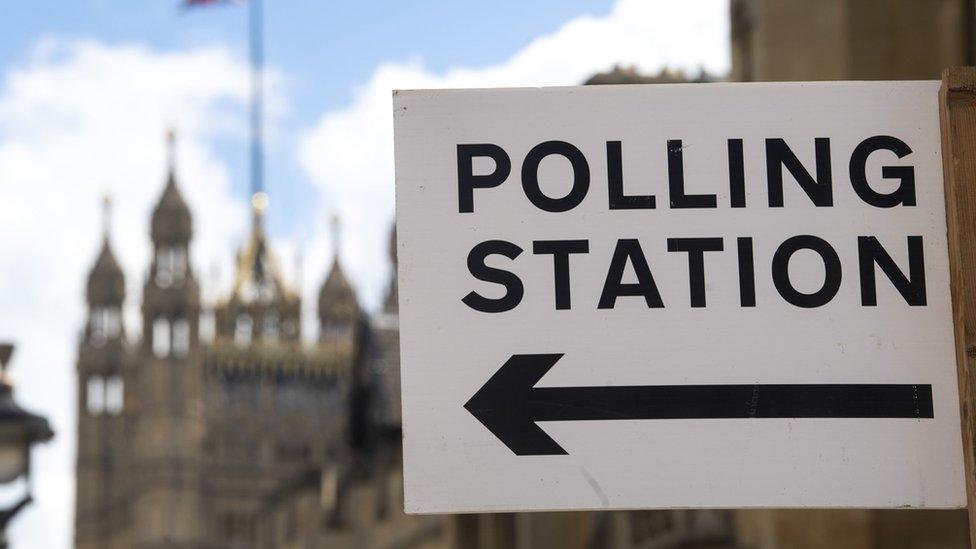2024: BBC London's experts make their predictions
- Published
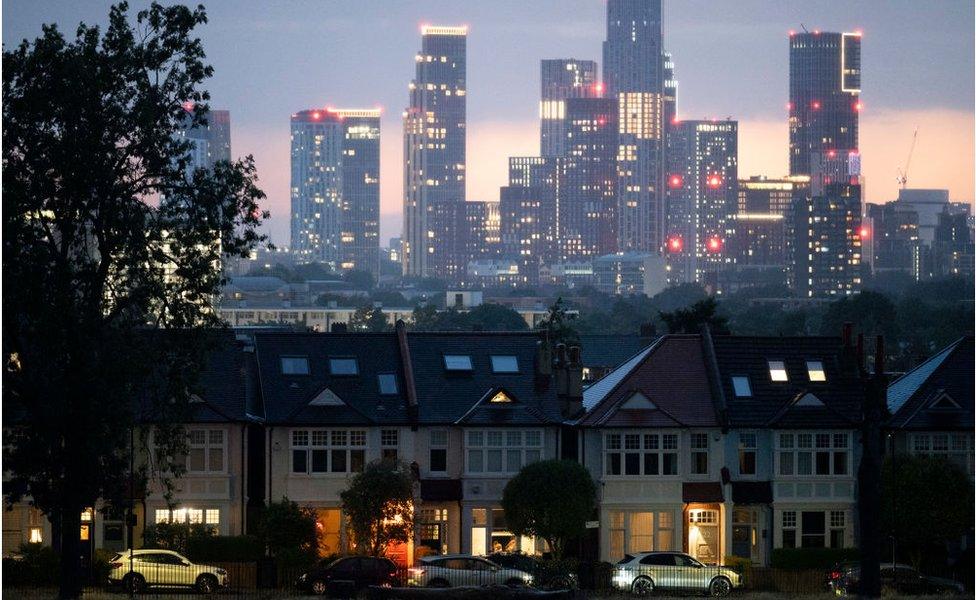
What will the future hold for London and Londoners?
In the past 12 months, London has had its ups and downs. Celebrations, commemorations, and even a coronation.
So as the door closes on 2023, what will happen in 2024? BBC London's experts give their predictions.

Tarah Welsh, BBC London work and money correspondent
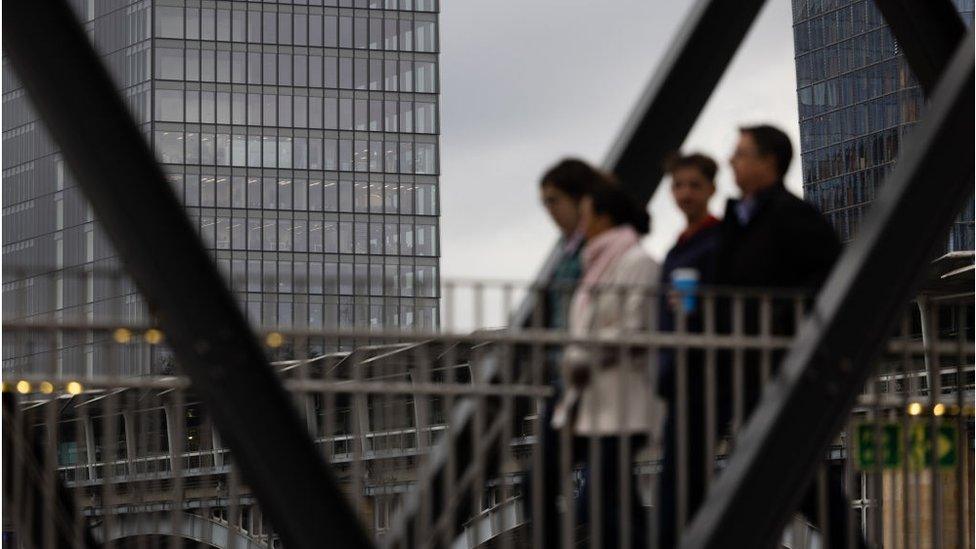
Many will continue to work from home or follow a hybrid model
The cost of living has been one of the main issues for Londoners and that may continue in 2024.
The rate at which prices are rising (inflation) may be slowing but prices are still high, particularly for food. Combined with record high rents and interest rate rises causing mortgage payments to increase, things have been incredibly difficult for some families.
Rents are predicted to continue to rise but not as sharply as we saw in 2023 and house prices are predicted to fall according to analysts.
But finding a secure, suitable home has not been easy for many Londoners. And in 2023 we reported many times on the difficult conditions for some.
New legislation aimed at improving things for tenants could become law this year with the Renters (Reform) Bill. , external
But housing will remain a huge issue and, in an election year, we can expect to hear promises and potential policies to build more homes.
The way some Londoners work remains changed since the pandemic. And while more people are heading into offices, hybrid and remote working will remain the norm for many this year. The impact of technology could affect the capital in other ways too.
A recent government report, external found London was the part of the country potentially most exposed to the impact of artificial intelligence because of the number of professional roles held in the capital that could be affected.

Tim Donovan, BBC London political editor
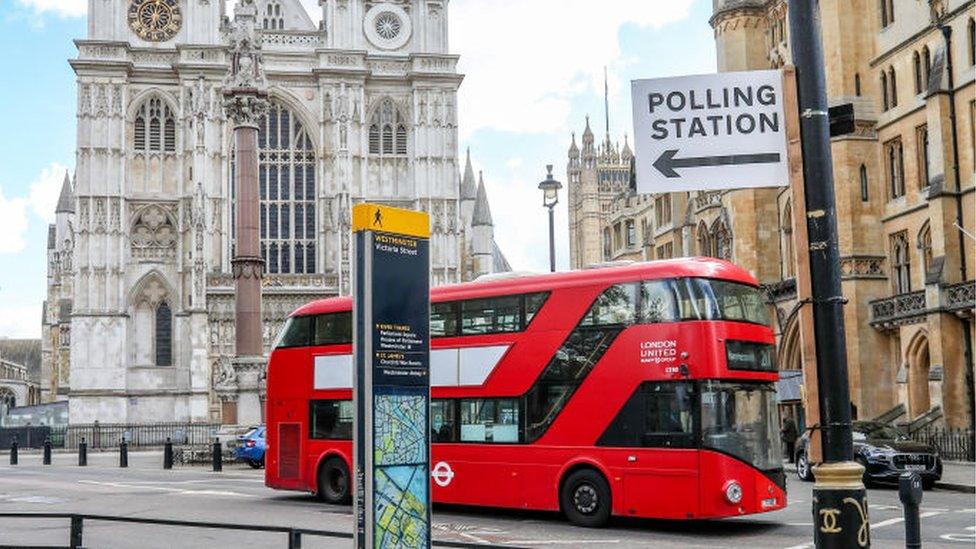
A mayoral election will be held in May and a general election is likely at some point in 2024
In 2024, Londoners need to be prepared for a blizzard of leaflets littering their doormats and political ads crowding their social media all because of two elections: the mayoral and general.
Set for 2 May, the mayoral election will see Labour's Sadiq Khan seek a third term.
Will an acronym - Ulez (Ultra-Low Emission Zone) - for the first time prove to be a major factor? Voters will be looking at what impact it has had on air quality, and which candidate has the solutions to push the net-zero agenda forward.
Will violent crime or housing prove something where concerns shape voting patterns?
In the weeks before, there will be negotiations over a new post-Covid transport finance deal for the capital which will remind us how fractious - generally - things have been between a Tory government and Labour mayor these last few years.
Although the general election does not have to happen until January 2025, some think Prime Minister Rishi Sunak may go to the country on the same day as the mayoral election; more assume it will be an autumn affair. Either way, expect campaigning to start now.
In London, a sizeable majority of MPs, like councils, are currently Labour. It will be tough for the Conservatives to upset that - and its campaign hopes are likely to rest on progress elsewhere.

Sonja Jessup, BBC London home affairs correspondent
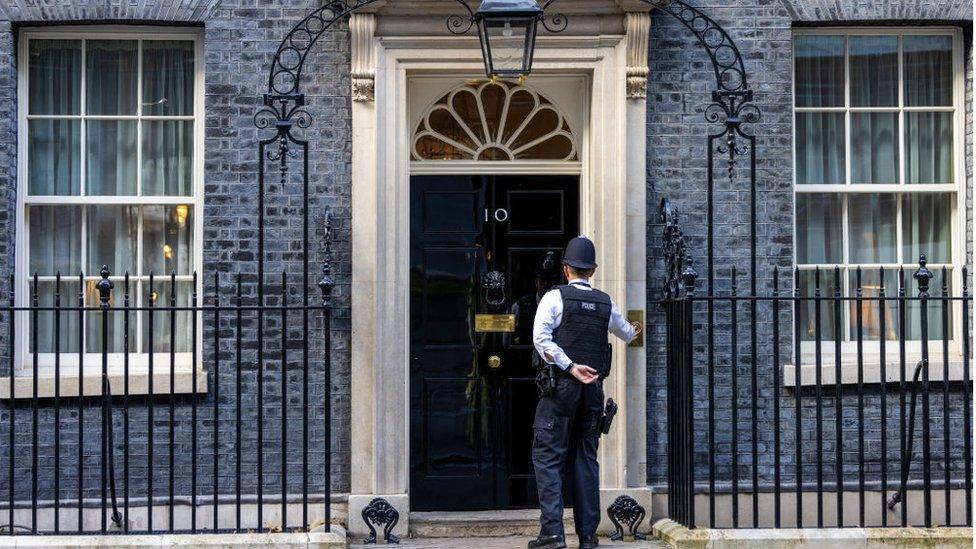
It could be another difficult year for the Metropolitan Police
2024 will see the Metropolitan Police continue to try to convince Londoners it's changing, with plans to lower crime and increase public confidence.
But it will face fresh challenges.
Commissioner Sir Mark Rowley has already warned there is a £250m funding gap, and he's worried about recruitment - the force is short of about 1,000 officers.
There are also concerns about the impact on local policing protests have as officers are diverted away from their normal roles.
Will the Met be able to meet promises, including boosting community policing and preventing violence against women and girls?
Will new approaches such as the use of data and technology to reprioritise resources, and the stop-and-search pilots launched last summer, start to demonstrate real change?
Other key developments to watch out for next year:
A firearms officer is due to stand trial in January accused of murder over the shooting of Chris Kaba
The first part of the Angiolini Inquiry, external is expected to be published, examining the career of former Met Police officer Wayne Couzens, who raped and murdered Sarah Everard
Changes to the police misconduct process are set to be introduced
The police watchdog, the HMICFRS, plans to publish a full inspection: can the Met prove it should be taken out of 'Engage', or so-called special measures?

Tom Edwards, BBC London transport and environment correspondent
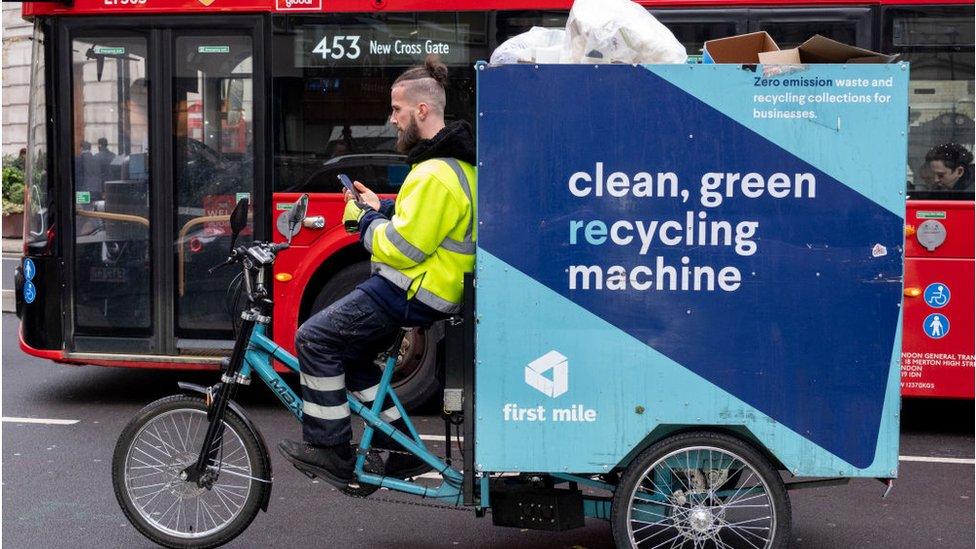
The continuing switch to lower carbon transport could be challenging
Several issues could come to a head in 2024.
The biggest is probably the Ulez. Susan Hall, the Conservative candidate, would scrap it if she becomes mayor - a stark contrast to the Labour incumbent Sadiq Khan who, amidst opposition, expanded it to cover all of the capital.
Interestingly, we won't have the data of what the Ulez has done to pollution levels by the mayoral election, but we have already seen the number of compliant vehicles reach 95%.
Undoubtedly, the Ulez is unpopular in some quarters and supported in others. Considering the 95% figure and the fact that if you live in the Home Counties you don't vote on the London mayor, the big question is: will the Ulez's opposition - or support - translate into votes?
Other issues to keep an eye out for are fare rises in a cost-of-living crisis and Transport for London's quest to get £500m in funds from government for capital infrastructure. Without its investment, new Piccadilly line and Bakerloo trains could be delayed.
More broadly, the decarbonisation of transport and the continuing switch to lower carbon transport could be challenging and the often-heated debate around who roads should be predominantly for in the capital - motor traffic, pedestrians or cyclists - shows no sign of abating.

Karl Mercer, BBC London health correspondent
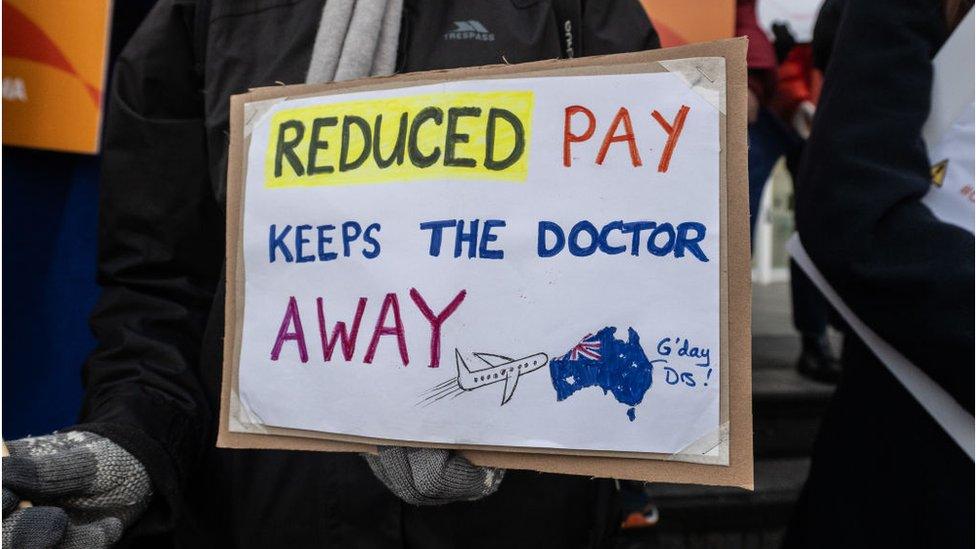
The continuing dispute means it is getting harder to reduce waiting lists
The new year will bring a challenge that highlights two of the major issues facing London's health service: strikes and long waiting lists.
Ongoing industrial action will see junior doctors walk out in the first week of January - traditionally one of the busiest for the NHS on the back of the Christmas break and growing winter pressures.
As well as putting extra strain on the service, the continuing dispute means it's getting harder to tackle waiting lists.
More than a million Londoners are waiting for procedures and the strike will see that number grow.
London's NHS bosses have called on the government and junior doctors to find a way out of the dispute and with an election looming, there will be much focus on promises for the NHS.
New hospitals have been promised for Whipps Cross, Hillingdon, and Epsom and St Helier however final plans and the budgets to go with them have yet to be announced.

Listen to the best of BBC Radio London on Sounds and follow BBC London on Facebook, external, X, external and Instagram, external. Send your story ideas to hello.bbclondon@bbc.co.uk
- Published27 December 2023
